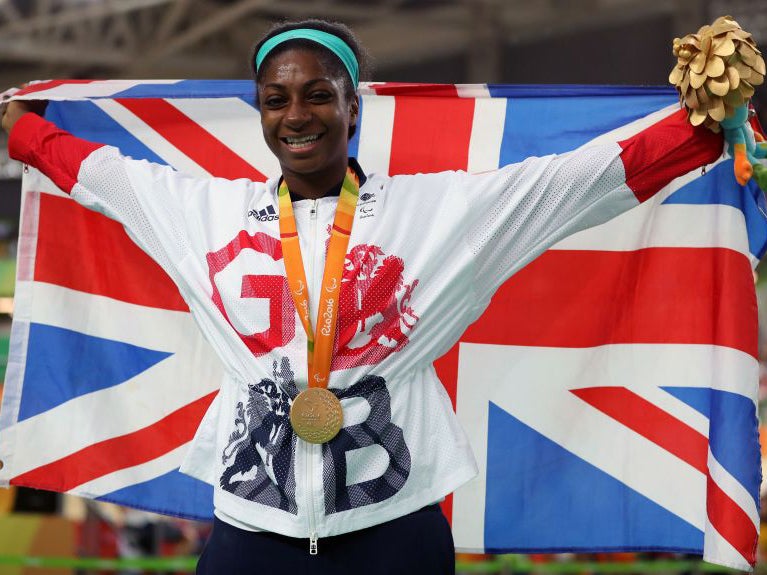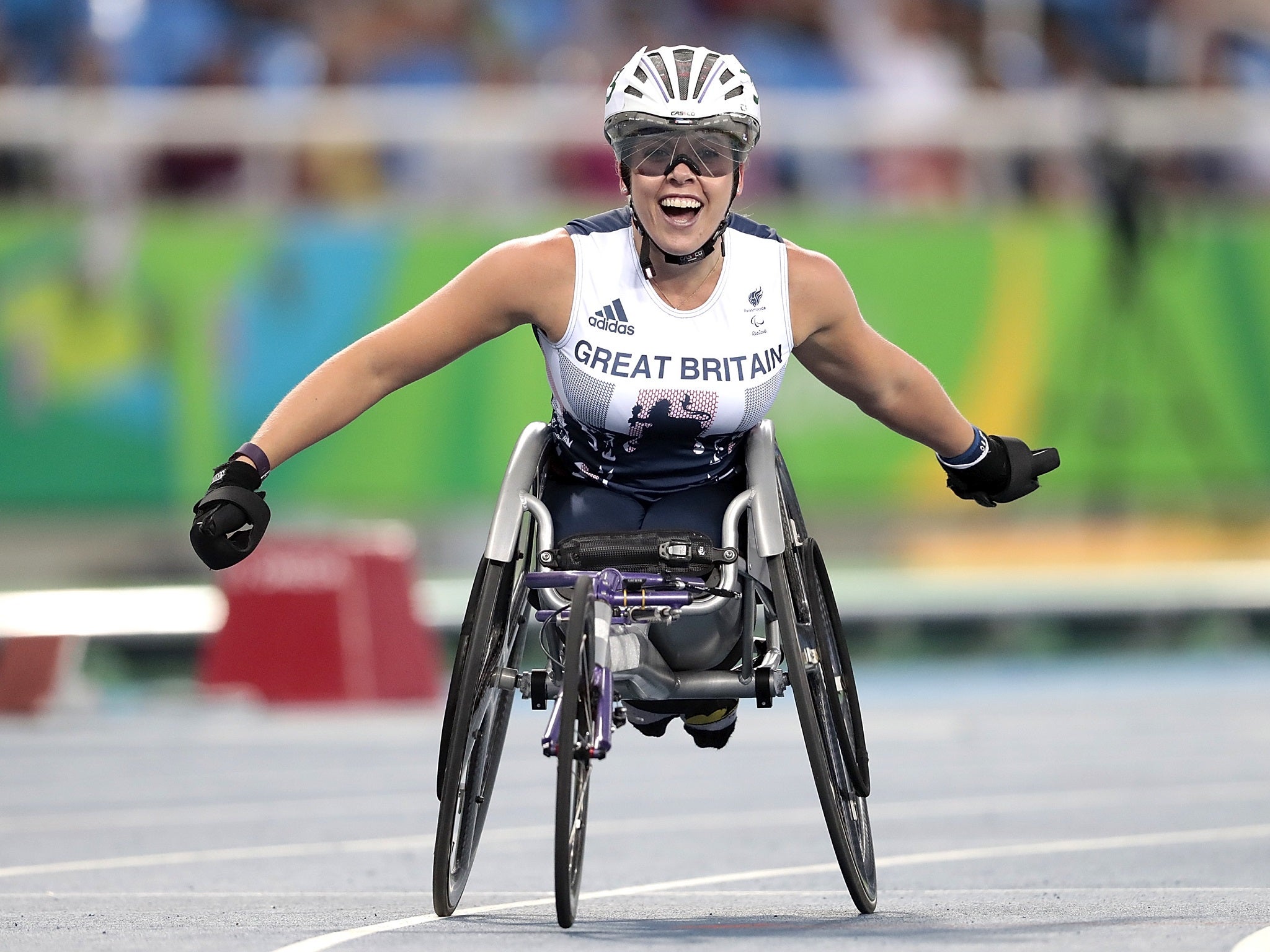Paralympics closing ceremony: Kadeena Cox leads GB Rio celebrations
The athlete won four medals- including two gold

Your support helps us to tell the story
From reproductive rights to climate change to Big Tech, The Independent is on the ground when the story is developing. Whether it's investigating the financials of Elon Musk's pro-Trump PAC or producing our latest documentary, 'The A Word', which shines a light on the American women fighting for reproductive rights, we know how important it is to parse out the facts from the messaging.
At such a critical moment in US history, we need reporters on the ground. Your donation allows us to keep sending journalists to speak to both sides of the story.
The Independent is trusted by Americans across the entire political spectrum. And unlike many other quality news outlets, we choose not to lock Americans out of our reporting and analysis with paywalls. We believe quality journalism should be available to everyone, paid for by those who can afford it.
Your support makes all the difference.Kadeena Cox was last night set to lead Great Britain's Paralympic team into the Rio 2016 closing ceremony at the Maracana Stadium.
ParalympicsGB, fielding 264 athletes in 19 of the 22 sports, finished second on the medal table to China, winning 64 gold medals and 147 in all over 11 days of competition. There were 119 medallists, 44 of them multi-medallists. Five British females - cyclist Dame Sarah Storey, swimmer Bethany Firth, wheelchair racer Hannah Cockroft and equestrian riders Sophie Christiansen and Natasha Baker - won three gold medals.
Cox won four medals, two of them gold, at her maiden Games, two years after being diagnosed with multiple sclerosis.
The 25-year-old from Leeds became the first Briton in 28 years to win medals in two sports at one Games and the first in 32 years to claim gold medals in two sports at the same Paralympics. Cox won the C4/C5 500 metres time-trial in the velodrome and the T38 400m on the running track. She set world records in both events.
She proved her sceptical coaches wrong and now Cox wants to encourage others to explore what is possible. She said: "I wasn't disabled in London, but I watched the Paralympics. When I was diagnosed with my condition I sat in my hospital bed and decided I wanted to go to Rio. That was what I was going to do.

"To be here and to have won medals and to do it in the fashion that I've done it is just amazing. When I first set out the journey was just about me and just a girl that wanted to go to the Paralympics. And then it became the journey of wanting to win medals, but not for me, for other people.
"Giving other people someone to look at, someone that can empower them who has overcome setbacks, disabilities, illnesses. You can make the most of these things. That's why I wanted to be here and do something different and push the boundaries. Show people what we're able to do, rather than what we're not able to do.
"That's why it's really special. I got the medals, but being able to spread a message is way more important than the medals. Yes, we have disabilities, but it's not stopping us from being totally amazing. We can show the world how amazing we are."
So surprised was Cox when she was summoned to see ParalympicsGB chef de mission over the flagbearer role that she thought there was another reason to be called.
"I thought I was in trouble," she said. "There have been so many amazing performances, so many people have done so many amazing things. To be able to represent such an amazing team, it's such an honour."
Britain's medal haul is their third highest in the history of the Paralympic Games, which formally began in 1960 in Rome, having had origins at Stoke Mandeville in Buckinghamshire. Britain won 107 golds at the New York/Stoke Mandeville Games of 1984 and 65 at the 1988 Seoul Paralympics.
It appeared on Saturday's penultimate day that the Seoul tally would be passed, only for the team to fall one short. The statistics were breathtaking nonetheless, with Britain winning 12 per cent of medals available for a best return since 1968, when Paralympic sport was in a different era.
The 11 gold medal-winning sports - archery, athletics, boccia, cycling, canoeing, equestrian, rowing, swimming, table tennis, triathlon and wheelchair tennis - equals the record held by China from the 2008 Games in Beijing.
Winning medals in 15 sports - powerlifting, sailing, wheelchair basketball and wheelchair fencing the additional four - matches the record the United States set in Athens in 2004.
Yes, Russian athletes were absent - banned by the International Paralympic Committee for state-sponsored doping - but British athletes could only face the opposition present.
British athletes recorded 49 Paralympic records and 27 world records. The eldest and youngest athletes in ParalympicsGB - 67-year-old equestrian rider Anne Dunham and swimmer Abby Kane, 13 - claimed medals.
Five sports - archery, canoeing, cycling, equestrian and rowing - topped their sport-specific medal table.
Join our commenting forum
Join thought-provoking conversations, follow other Independent readers and see their replies
Comments